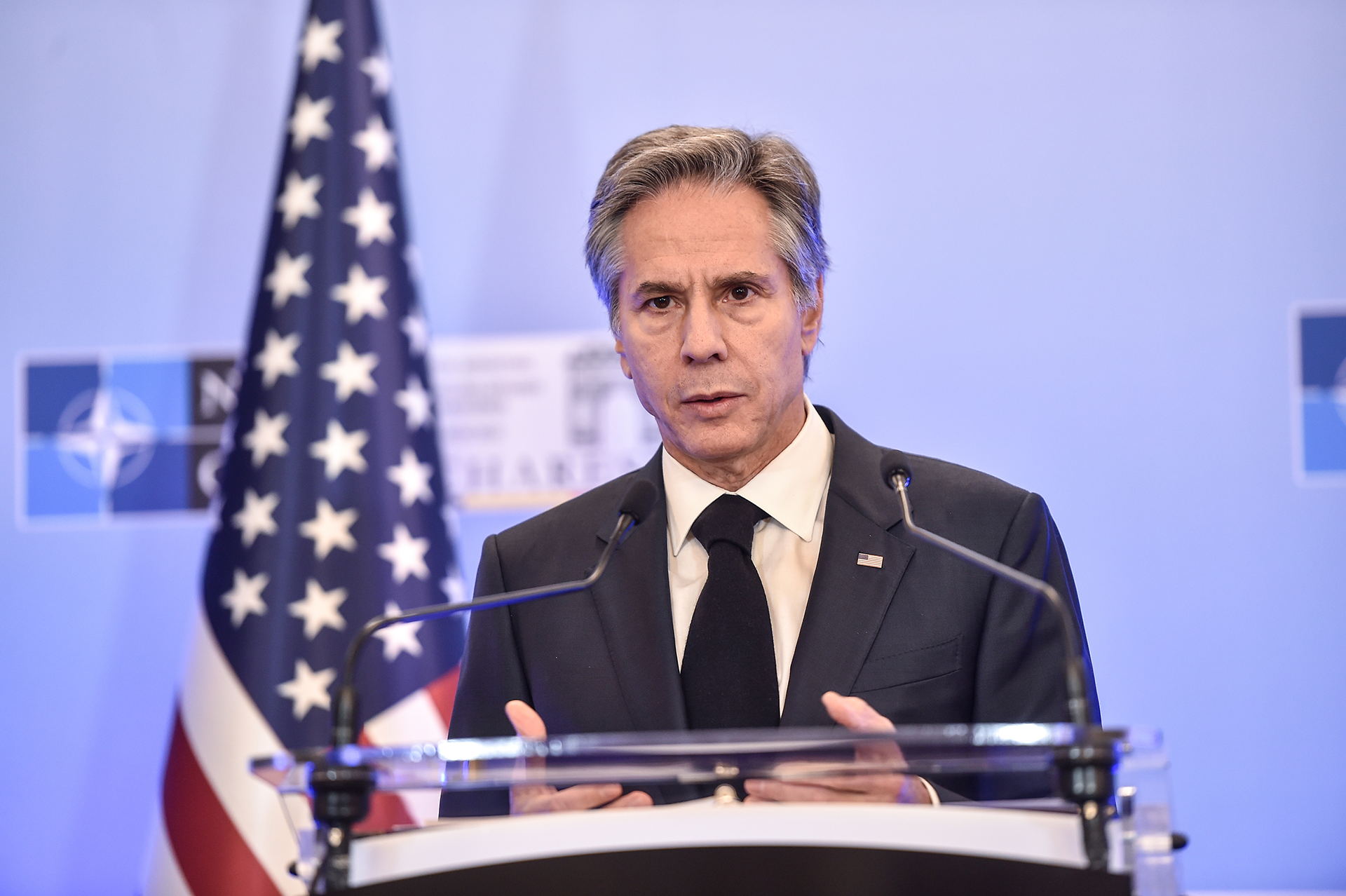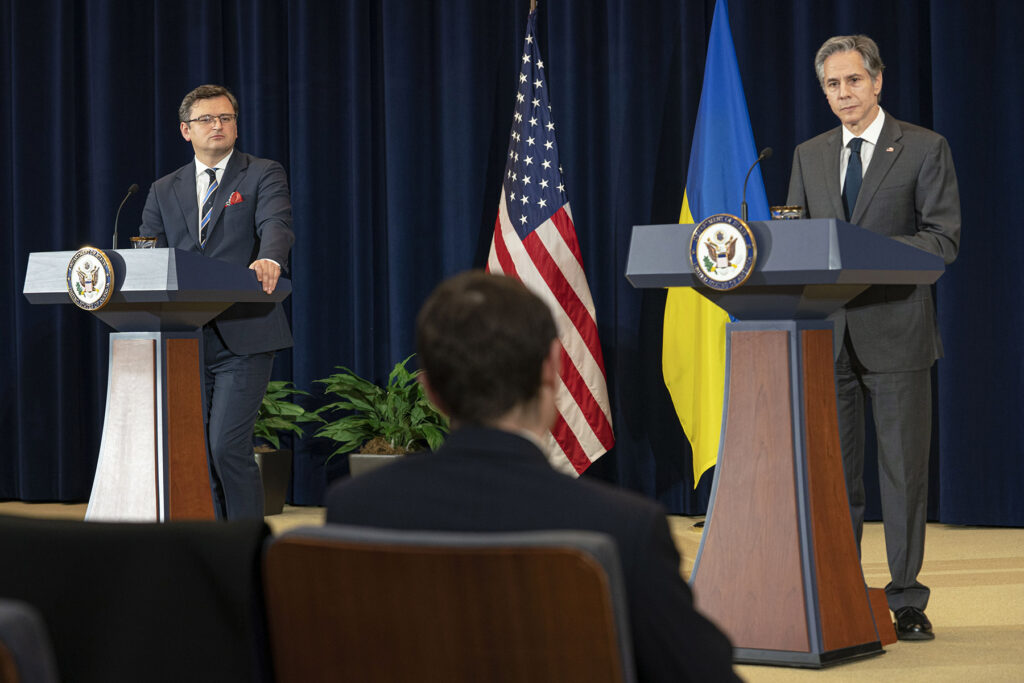Few people today remember the sequence of events that played out in Eastern Europe from December 2021 to February 24, 2022, the date at which Russia began its full-scale invasion of Ukraine. There are at least two good reasons most people don’t remember. The first is the media’s confusing coverage of the critical moments taking place at the time. This reflected journalists’ chronic disinterest in historical trends and relationships, leading to the persistent failure to build anything resembling even a modest awareness of context into its reporting. US media prefers focusing on what happened while obscuring why it happened. They fail to appreciate the fact that the absence of context is a particularly virulent form of disinformation.
The second reason is similar, but more extreme. It consists of the media’s refusal even to consider that anything significant happened before what they have agreed to call the “unprovoked invasion” of February 24. Characterizing the invasion as unprovoked has served to create the illusion that everything was coasting along smoothly until Russian President Vladimir Putin got the crazy idea to attack a neighboring country. The ensuing drama to handle in the news was simply the brave resistance of Ukraine as it refused to be dominated by an evil regime.
In January 2022, citing US Secretary of State Antony Blinken, The New York Times reported on the state of possible negotiations with Russia, whose troops were massed at the Ukrainian border. According to reporters Michael Crowley and Andrew E. Kramer “Mr. Blinken seemed to suggest that, by taking positions the West considers ‘absolute non-starters,’ Russia was making it hard to discern what it actually thinks it can achieve through diplomacy.”
Today’s Weekly Devil’s Dictionary definition:
Non-starter:
A convenient term of dismissal of an adversary’s negotiating position as a reason to avoid engaging in negotiating. A particularly useful technique for anyone who seeks to aggravate a problem rather than solve it.
Contextual note
Blinken’s statement that what he considers non-starters makes “it hard to discern” Russia’s position should leave anyone with a logical mind speechless. If you want to “discern” something, you use the opportunity to explore it, rather than reject it. Even more illogical is Blinken’s qualification of what is literally a starting position – a place to begin – as a non-starter. It is equivalent to complaining that the first round of a 12-round boxing match isn’t the concluding round.
In other words, Blinken refuses to try to discern tomorrow what he doesn’t discern today, even in the face of what appears as a potential catastrophe. With hindsight, we know that 2022 produced a catastrophe, not just for Ukraine and Russia, but for most of the world. Wasn’t that eventuality worth investing in a bit of discernment in January 2022?
We now know that in the early months of the conflict Blinken’s refusal of discernment continued. Direct negotiations that had begun between Ukraine and Russia were sabotaged, at one point quite explicitly by then UK Prime Minister, Boris Johnson. Negotiating positions that had already evolved in March and April thus became recategorized as non-starters.
In a change of approach, the Fair Observer Devil’s Dictionary has taken the liberty of consulting the future global expert on all aspects of international relations… as well as everything else: ChatGTP. Here is how the AI app explained Blinken’s choice.
In the language of diplomacy, the term “non-starter” is often used to describe a proposal or idea that is considered to be completely unworkable or unfeasible. Recently, US Secretary of State Antony Blinken used this term to describe Russia’s positions on various issues, suggesting that by taking positions that the West considers to be “absolute non-starters,” Russia is making it difficult to understand what it hopes to achieve through diplomacy.
But what exactly does it mean for a proposal or idea to be a “non-starter”? In the world of diplomacy, where negotiations and compromise are key, the term implies that a particular proposal is so fundamentally unacceptable that it cannot be the basis for any kind of discussion or negotiation. It is a statement of finality, an assertion that the matter is closed.
However, it is important to remember that what one party considers to be a “non-starter” may not be viewed the same way by another. The label of “non-starter” is often used as a shorthand for dismissing an idea without much thought or consideration, and it can be used to shut down important conversations and debates before they even begin.
It’s also important to note that the term non-starter is often used in political context, and it can be used as a way for one side to assert dominance, or to avoid the real substance of the matter.
In conclusion, the word “non-starter” is a useful tool for describing something that is unlikely to succeed. But it is important to remember that the term can also be used to dismiss something prematurely, and it is important to consider all options and perspectives before making a final judgement.”
We should note that the AI app appears to know nothing and care less about the context of Blinken’s statement. In that it may be successfully aping the work of most mainstream journalists. It’s worthwhile noticing, however, that its conclusion correlates with my own observations.
I shall have more to say about our AI friend’s purported wisdom and writing ability in a future column dedicated to recommending ways teachers can harness its power effectively, essentially by working on context and perspective.
Historical note
As ChatGPT notes, those who possess power and refuse to share it are particularly inclined to qualify an adversary’s attempt to clarify very real issues as a non-starter. This is a recent historical trend evident over the past quarter of a century. When, after 9/11, the George W Bush administration refused to discuss with Afghanistan’s Taliban government their offer to capture and try Osama Bin Laden on the grounds that refusing to deliver him to the Americans was literally a non-starter, a futile war began that lasted 20 years and Bin Laden himself survived for another decade.
Israel consistently refuses to negotiate with Palestinians by branding them as terrorists. Since 9/11, that has become the most convenient ploy for applying Blinken’s non-starter attitude. In what might be described as today’s Cold War II culture, the world has clearly taken a step towards systematic intransigence that goes well beyond the aggressive incomprehension of the original Cold War. US President John Kennedy and Soviet Premier Nikita Khruschev both possessed a famous “red telephone” that they actually used in moments of dangerous tension, such as the 1962 Cuban missile crisis. In 1963 the Kennedy administration established a permanent “hotline” with Moscow that still exists, but instead of being a personal connection between leaders it is a piece of strategic communication infrastructure between command centers of the two nations.
Stanley Kubrick’s movie, Dr Strangelove, certainly the greatest comic catastrophe film ever made, featured a scene where the two leaders – the US president played by Peter Sellers and the Soviet premier – attempt to resolve an impending nuclear conflagration cleverly engineered by a mad brigadier general empowered to launch a nuclear attack. Sixty years ago, at least some Americans and many in the media still believed dialogue was a normal way of addressing geopolitical crises.
The Ukraine war has brought the world closer to a nuclear brink. In such cases, and especially before the first critical step is taken, even if politicians cling to the idea of non-starters, responsible media should use such occasions to call their public’s attention to two things: the gravity of the problem and the possible hypocrisy of refusing a gambit when those risks are identifiable. In the runup to the Russian invasion, Western media did neither of those things. What it did do was focus on the decision-making of one individual, Vladimir Putin, as if it was the only significant variable in the situation. In so doing, they reduced a grave geopolitical drama to two dimensions: a single personality, Putin, as the cause and a single event, the actual invasion as an effect.
Geopolitics should not be reduced to two dimensions. The very idea that it might be reduced to two dimensions should be considered a non-starter.
*[In the age of Oscar Wilde and Mark Twain, another American wit, the journalist Ambrose Bierce produced a series of satirical definitions of commonly used terms, throwing light on their hidden meanings in real discourse. Bierce eventually collected and published them as a book, The Devil’s Dictionary, in 1911. We have shamelessly appropriated his title in the interest of continuing his wholesome pedagogical effort to enlighten generations of readers of the news. Read more of Fair Observer Devil’s Dictionary.]
The views expressed in this article are the author’s own and do not necessarily reflect Fair Observer’s editorial policy.
Support Fair Observer
We rely on your support for our independence, diversity and quality.
For more than 10 years, Fair Observer has been free, fair and independent. No billionaire owns us, no advertisers control us. We are a reader-supported nonprofit. Unlike many other publications, we keep our content free for readers regardless of where they live or whether they can afford to pay. We have no paywalls and no ads.
In the post-truth era of fake news, echo chambers and filter bubbles, we publish a plurality of perspectives from around the world. Anyone can publish with us, but everyone goes through a rigorous editorial process. So, you get fact-checked, well-reasoned content instead of noise.
We publish 2,500+ voices from 90+ countries. We also conduct education and training programs
on subjects ranging from digital media and journalism to writing and critical thinking. This
doesn’t come cheap. Servers, editors, trainers and web developers cost
money.
Please consider supporting us on a regular basis as a recurring donor or a
sustaining member.
Will you support FO’s journalism?
We rely on your support for our independence, diversity and quality.








